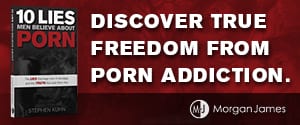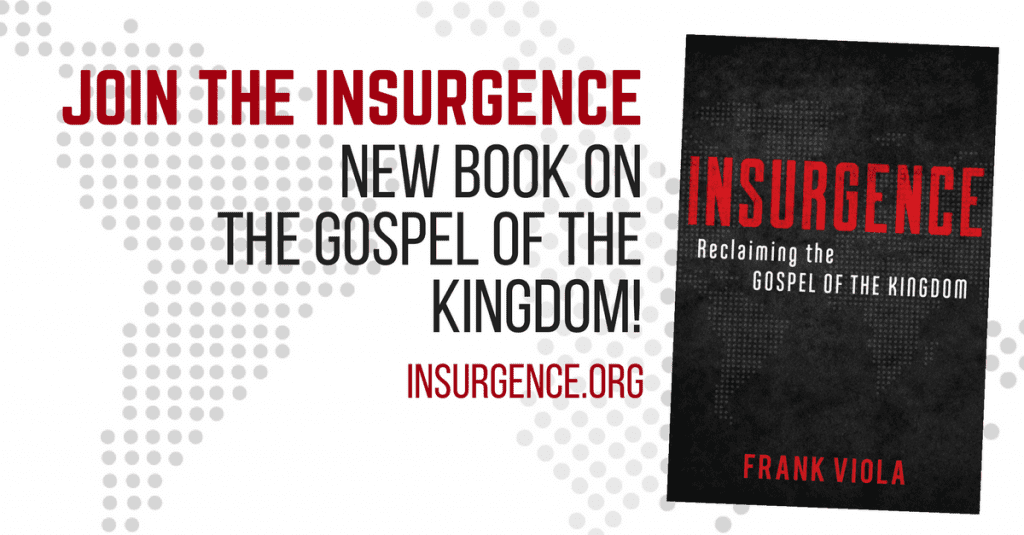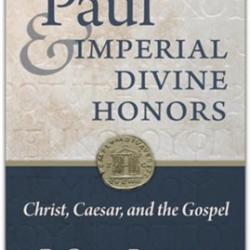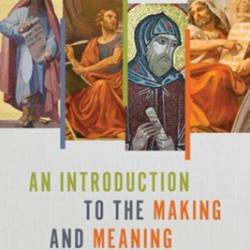Stephen Kuhn has just released a new book called 10 Lies Men Believe about Porn. The book is designed to help those who struggle with an addiction to pornography.

I caught up with Stephen to interview him about this subject and his new book.
If you find the interview helpful, share the interview with your friends using the share buttons below.
Enjoy!
Instead of asking, “what is your book about,” I’m going to ask the question that’s behind that question. And that unspoken question is, “how are readers going to benefit from reading your book?”
Stephen: Men who struggle with porn (or any habitual sin) frequently have thoughts such as I’m the only one struggling like this, God must be so ashamed of me, or I’ve got to get stronger to overcome this. These thoughts are common, but they are also lies that contribute to their bondage.
10 Lies Men Believe About Porn holds these lies up against the truth of Scripture. Readers will learn how lies such as these can deceive them into missing out on the freedom Christ offers. Ultimately, readers will discover that the message of the Gospel isn’t about learning to fight better—it’s about being brought to a point where they no longer need to fight at all.
Tell us a bit about the experiences that shaped the insights in the book.
Stephen: I grew up in the church, taught youth ministry, and even went to seminary. Yet the entire time I was struggling with a hidden addiction to porn. I thought I was doing all the right things to get free—pray more, read the Bible more, pretend like I’ve got it together even though I know deep down I don’t. None of it worked though. My addiction continued to spiral out of control. Eventually it cost me my marriage.
As hard as it was to reach such a low point, God used it to prove to me just how much He loved me. I had always believed God turned His back on me when I sinned. I thought I had to clean myself up before He would accept me. Yet here I was, covered in the filth of a life I’d destroyed, and He remained with me through it all. Clearly what I had believed about Him was a lie.
This realization caused me to wonder if there were other lies I’d bought into and came to understand how my entire approach to overcoming my addiction was flawed. The more God showed me the truth, the more I began to experience the freedom He promises us in Scripture.
I’ve since come to realize that these same lies are nearly universal when it comes to addiction. I tested this idea by shifting the focus of my counseling away from behavior modification on to helping men recognize the beliefs they hold that contradict the truth of Scripture. Sure enough, this continually leads toward freedom while the previous approach to recovery mainly led to discouragement.
How is your book different from the many other books on the same subject?
Stephen: The majority of books dealing with pornography addiction share the same message: “Try harder, fight better, resist temptation until it goes away.” In other words, they’re telling men to overcome their sin using their own power, and clearly it’s not working.
I wrote 10 Lies Men Believe about Porn for the men who have become tired of that message. For the men who have fought hard, yet continue to fail. I wrote it to help men discover that freedom comes when they trust Jesus to set them free, not from trying to overcome porn on their own. Instead of telling readers what they need to do, I share with them the truth about what Christ has already done.
To put it theologically, most books on this topic are written from the perspective that we achieve sanctification by following the rules. 10 Lies Men Believe about Porn is written from the understanding that we are sanctified by Grace alone.
Give us two or three insights that you and others have found to be the most helpful in defeating porn addiction?
Stephen: How about I give you two of the lies from the book, as well as the truth that overcomes them:
LIE: My pornography addiction is about fulfilling my sexual desires.
TRUTH: Pornography addiction results from the attempt to receive intimacy without risking rejection.
Many men fear they will be rejected if people discover the truth about them, so they hide their flaws and pretend to be who they think others want them to be. Deep down though, they know they’re bluffing. This is where pornography becomes so tempting. It offers men a way to satisfy their desire for intimacy without the risk of being exposed as the fraud they fear themselves to be. In reality though, the shame that comes from using porn fuels their isolation and drives them further away from the true intimacy they are searching for.
LIE: I’m strong enough to control my pornography addiction on my own.
TRUTH: In order to find true freedom, you must give up on your own ability to control your sin.
God wants to set you free from your addiction, but He leaves it up to you to decide when you’re ready to release it to Him. Doing so isn’t easy though, as it requires facing the full depths of your sin, including the pain you have caused others. It’s for this reason that many men will only consider asking for His help after they’ve tried every other option to fix things on their own. The longer you wait though, the harder it will become.
When a person is tempted to look at porn, what should they do at that very moment to replace the temptation and “change the channel” in their minds, so to speak?
Stephen: One of the things we talk a lot about in our groups is confessing your sin before you commit it. What that means practically, is when you’re in the moment where you want to click on a link, send a quick text or email to a trusted friend and tell them what you’re thinking. It can be as simple as “I’m thinking about looking at porn. Check in with me in a few to make sure I’m okay.”
When you bring your sin into the light before you act out it loses its power over you, making it much more likely that you will walk away instead of giving in. Plus, if you know your friend is going to check back in with you, it can be the extra motivation you need to make a wise decision.
Once a person has decided to get serious about ending the addiction, what practical precautions can they take to minimize the amount of temptations they will face?
Stephen: The reality of our world today is you no longer need to go looking for porn. Porn will come looking for you. That being said, it is wise to minimize the ways in which porn can find you.
Internet filters are great for this, but they are not infallible. Anybody who wants to get around a filter can. That’s why it’s important to get a filter that comes with built-in accountability. This way, a list of all your activity gets emailed to someone you trust who also has your best interest in mind. If you try to get around the filter, they will be notified so they can talk with you about it.
Ultimately though, recovery isn’t about blocking out temptation. It’s about learning how to respond appropriately when the inevitable temptations arise. So any precaution such as a filter shouldn’t be seen as a solution—they’re merely speed bumps that will slow you down long enough to regain your senses.
Some Christians justify the use of pornography. They argue that as long as it doesn’t include children or young women who have been taken against their will, it’s not hurting anyone. I’ve even heard some married people justify it saying that as long as their spouse is okay with it, what’s the problem? What do you say to these arguments? Specifically, how does it hurt the person viewing it and others?
Stephen: I would encourage anyone making this argument to do some research into the reality of the porn industry. The truth about what goes on behind the screen (sexual abuse, drug addiction, emotional manipulation) is heart breaking. In addition, no matter where you get your porn, even if it’s from a free site, it’s extremely likely that you are helping finance sex-trafficking organizations. So to say that porn isn’t hurting anyone is simply not true.
Either way, the question shouldn’t be whether or not porn is hurting anyone or if your spouse is okay with it. The question should always be “What does God think about it?”
God clearly considers pornography to be something we should avoid at all costs (see Matthew 5:28; 1 Corinthians 6:18). He knows how damaging it is and wants to protect you from the destruction it will bring if you allow it into your life.
If you read my story, you can see many examples of negative consequences directly resulting from my porn use. It distorted my view of healthy sexuality, caused me to objectify women, taught me to become a pathological liar, and caused untold amounts of heartache and suffering for my wife.
And I am not alone in my experience. 68% of all divorces list pornography use as a contributing factor. 41% of surveyed adults admit they feel less attractive due to their partner’s pornography use. 30% said their partner’s use of porn made them feel like a sexual object.
Even if you’re not in a relationship and only use porn in isolation, it can still have a negative effect on you. For instance, there are new insights from the scientific community linking porn use with an increase in instances of erectile dysfunction in young men (the average age is now 25).
Research has also shown the hyper-stimulation of frequent porn use changes your brain to become addicted to such intensity. Normal, everyday activities (and relationships) will become less pleasurable as your brain adapts to desire something much more potent (for more on this, check out the TED talk The Great Porn Experiment).
So, even if you do believe you aren’t hurting anyone by viewing porn, you’re still hurting yourself. You may not see that now, but eventually it will become undeniable. And when that day does come for you, God will still be there waiting for you with open arms.
Like smoking or doing drugs, some people have quit for long periods of time only to return to the addiction. What do you say to these people?
Stephen: I would tell them the same thing Paul told the church in Corinth. You didn’t relapse because you’re a bad person or you suddenly became weak. You relapsed because you forgot the truth about who you are now that Christ lives within you. Remember what He has done in your life so far. Don’t give up. This slip-up doesn’t define you, the indwelling Spirit of Christ within you defines you. Dust yourself off, learn from your mistake, and run back to Him.
Is there anything else you would like to say about the book?
Stephen: It’s one thing to read an addiction recovery book on your own, but it’s an entirely different experience when you apply it directly to your own life. That is why I wrote a study guide to accompany 10 Lies Men Believe about Porn. I’d encourage anyone reading the book to work through the guide at the same time. Better yet, find a friend you trust and go through the books together. After all, one of the lies men believe is that they can fight this on their own. The sooner you find someone to walk this path with you, the better.
Order 10 Lies Men Believe About Porn from Amazon

















